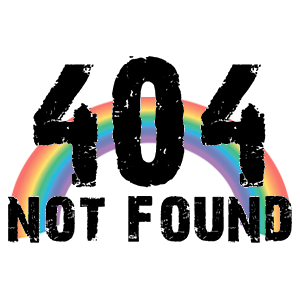
By Mikael Böök, Isnäs, Finland
Part 1 of this blog post gathered many international readers three days ago, not least thanks to Kathleen de la Peña McCook and her sharing and comments.
Evidently, the librarians’ resistance to discuss this matter is considerable, even among peers in the Facebook (which is not really in the public sphere, and not really private either).
To overcome this inhibition, it is probably wise to divide the matter in two by drawing a line between the person and the thing (admittedly, this is often quite difficult).
Therefore, please consider that Julian Assange is a man and that a man is strictly speaking not a thing, whereas the WikiLeaks is a thing, I mean a certain collection of documents that WikiLeaks has released and made public on its website WikiLeaks.org and/or via their co-publishers; newspapers or other public media.
Also, ponder that documents can be mismanaged, locked up in a secret place, or simply destroyed, but not mistreated and tortured (in the same sense as a living being can be).
Then ask yourself and your peers, the other librarians: what will happen with the huge document library that now exists and can be studied at WikiLeaks.org? For how long do we think that a website, such as WikiLeaks.org, will stay alive? Where will all those documents be preserved if, one day, …
… that website would give only errors of the type 404? Would they be preserved in «the cloud»? Or brought back to the locked-up repositories of private corporations, dictators and spy organisations, and the hidden and shadowy depths of state bureaucracies? Are the librarians responsible for trying to keep those documents accessible for public scrutiny, and for historical research? Can this be a matter of absolutely no concern for the deeper thinking librarians?
Remember the words of Milan Kundera: «The struggle of man against power is the struggle of memory against forgetting.» And be inspired by the words of Marilyn Johnson: “Good librarians are natural intelligence operatives. They possess all of the skills and characteristics required for that work: curiosity, wide-ranging knowledge, good memories, organization and analytical aptitude, and discretion.” When you give a closer thought to these words, while keeping in mind that the library belongs to the whole world, you will understand why Mike Pompeo and other keepers of state secrets fear that WikiLeaks is «a hostile intelligence service».
A website such as WikiLeaks.org, and a whistle-blower, say Edward Snowden, may inform and enlighten their own age, but the library is also supposed to transmit their revelations to the next age.
Add, that the library of WikiLeaks has not only revealed lots of misuse of political and economic power. It has also revealed new possibilities to widen the public sphere, to enlargen the democracy, and, generally, to show, with Margaret Atwood, that «A Word after a Word after a Word is Power», at least for the time being.
How do we envision the next age? Dare to think of it.
Here is a pick from the WikiLeaks:
«Amazon is the leading cloud provider for the United States intelligence community. In 2013, Amazon entered into a $600 million contract with the CIA to build a cloud for use by intelligence agencies working with information classified as Top Secret. Then, in 2017, Amazon announced the AWS Secret Region, which allows storage of data classified up to the Secret level by a broader range of agencies and companies. Amazon also operates a special GovCloud region for US Government agencies hosting unclassified information.
Currently, Amazon is one of the leading contenders for an up to $10 billion contract to build a private cloud for the Department of Defense. Amazon is one of the only companies with the certifications required to host classified data in the cloud. The Defense Department is looking for a single provider and other companies, including Oracle and IBM, have complained that the requirements unfairly favor Amazon. Bids on this contract are due tomorrow» (quoted from «AmazonAtlas», a document that appeared at WikiLeaks.org on 11 October, 2018).
As I mentioned in my posting about IFLA and the Bill & Melinda Gates Foundation, the contract to provide Pentagon with cloud services was eventually won by Microsoft. It was, however, the cloud service provider AWS (Amazon) that, after pressure from US politicians, agreed to shut down WikiLeaks.org back in 2010 (see, for instance here.)
This example goes a long way to show that newspapers, radio and television are no longer sufficient to create and save a democratic public sphere. But digital words and pictures are also easier to shut up and keep locked in. This makes it all the more important for librarians and their IFLA to support and cooperate with WikiLeaks.
